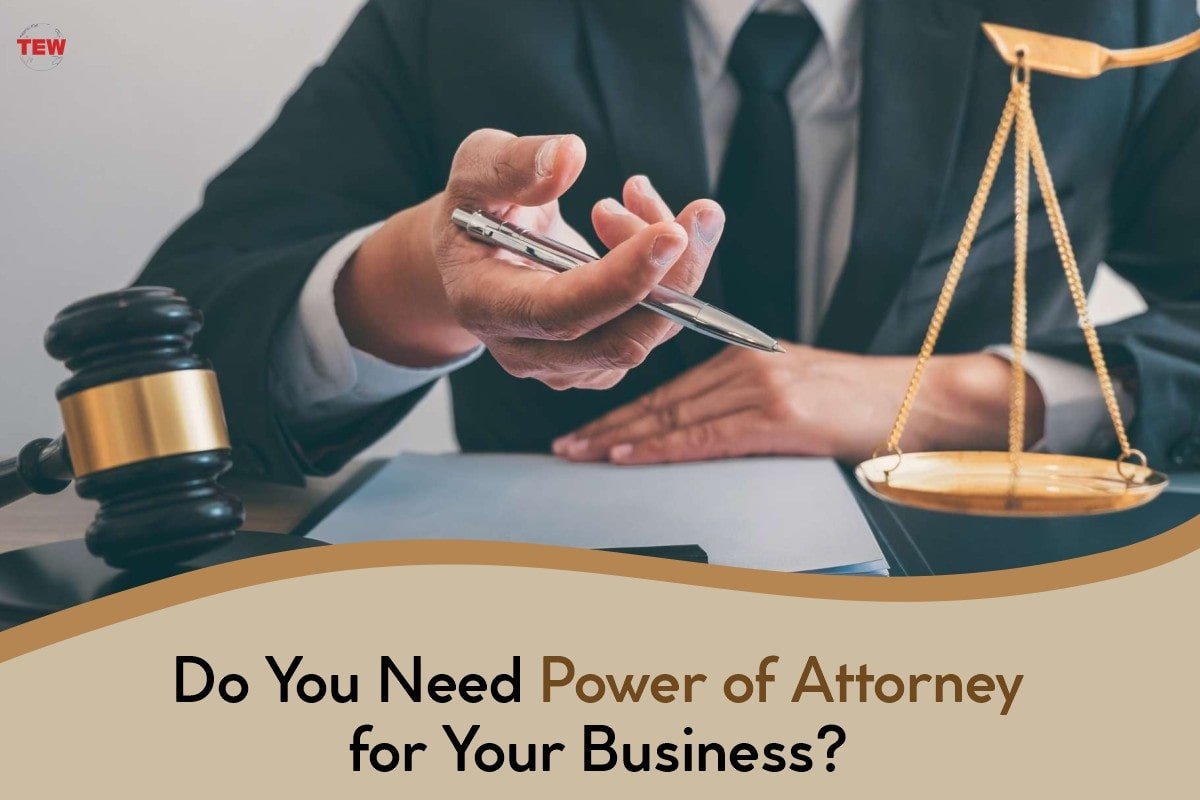As a business owner, it is tough to think of losing control over any decision, much less on every facet of your day-to-day operations and long-term business strategy. However, for many business owners, there may come a time when this becomes necessary. So, how do you get yourself ready for such circumstances? Why is business power of attorney required?
Some people sell their business when they are still in complete control of their situation. Their business is their retirement plan, and they spend their working lives constructing something they can sell when the time comes. Others continue their business till the end. Because their business is their life, and they can’t imagine doing anything else, they rely on their estate plan to handle ownership and control transfers.
However, there is a gap that must be filled in both instances: What happens to the business if something happens before you’re fully prepared?
What is a Business Power of Attorney?
A business power of attorney is a legal document that allows someone to act on behalf of a company. In states like Georgia, a power of attorney form isn’t a one-size-fits-all solution. There are various options available. So, rather than issuing a general power of attorney that would permit the designated agent to act freely, the document typically outlines the settings and transactions where the individual has power of attorney.
Such documents or forms can be useful in various situations, and those interested in granting power of attorney to a business associate can speak with a lawyer about the requirements.
A power of attorney (often known as a “durable power of attorney”) can be quite explicit in terms of the agent’s authority, and it might include language making it effective only under a specific event (for example, the business owner’s incapacity). You should be absolutely sure that your business power of attorney is crystal clear in both of these areas as a business owner. You don’t want your agent claiming to make decisions they are not permitted to make, and you don’t want any doubt whether the agent’s decision is final.
What if You Don’t Have a Power of Attorney?
Matters can get nasty if you don’t have a Business Power of Attorney. If you become incompetent, your family will need to go to court to appoint someone to manage your affairs. This person is commonly referred to as a conservator. The legal route is time-consuming and costly. Furthermore, the court may not appoint the person you would have selected to represent you.
Assume a person has no Business Power of Attorney and falls into a coma as a result of his surgery. No one is capable of instantly taking over his business and other financial issues. To designate a conservator, his relatives will have to go to court. Even though they may have selected the brother as the conservator, the court may not agree to that decision.
How Can You Make a Business Power of Attorney?
It is a simple process to create a power of attorney. Although it is not required, many states have standard forms that can be used, like this California power of attorney form here. You either fill in the blanks or check the boxes that apply. You can find out if your state has a Business Power of Attorney form by searching for it on the internet. Some banks and brokerage firms have their own forms for business power of attorney.
You’ll have to notarize your POA by signing it in front of a notary. Some states also require you to sign in front of one or more witnesses. You should file a copy of a POA with your county recorder’s office if your agent will be dealing with your business.
In a Business Power of Attorney, Who Can Act As an Agent?
Your agent has to be an adult, and someone you can trust. The person should also be capable of following your orders. For instance, if your family members don’t have business acumen, don’t choose a relative to run your company.
Your fiduciary is your agent. This term denotes that they must behave in your best interests and in good faith. Keep correct records, keep your property separate from your agent, and avoid conflicts of interest. You have the right to sue your agent for abusing their POA. Obtaining a court judgment against an agent, on the other hand, can take years. It may also be unrecoverable if no money or other assets are available.
Will I be Held Liable for My Company’s Power of Attorney’s Actions?
As an attorney operates as a principal’s agent, a director will be held accountable for the POA’s activities. In some cases, this may not be the best option for an existing director; and you may want to consider assigning an alternate director instead. To minimize liability and boost accountability, the company might consider appointing two agents to work together as a check and balance.
Keep in Touch with Your Designated Agent on a Regular Basis
When selecting a person to serve as your business power of attorney, look for someone who you trust to represent your interests and is prepared to accept the duty. While these discussions can be challenging, you should not appoint your agent randomly. Make sure your selected appointee is capable, and you should communicate with your agent regularly to ensure that the person is knowledgeable enough with the company and your personal goals to effectively step in if and when the time comes.
A POA is Not The Same As a Will
You shouldn’t anticipate your will to serve as a POA. A will specifies how your property will be distributed after your demise, whereas a POA is concerned with decisions made during your lifetime. You can, though, have both a living will and a healthcare POA.
Final Thoughts
Choosing someone to retain your Business Power of Attorney and stating that it will operate even if you become incapable, guarantees that you have a strategy in place for managing your financial and personal affairs in the event you become unable to do so. This allows you more control over how that process is handled if the need arises in the future. Your POA should remain viable even if you move to another place; although, the American Bar Association suggests that you use this opportunity to amend your power of attorney. The power of attorney becomes ineffective on your death





